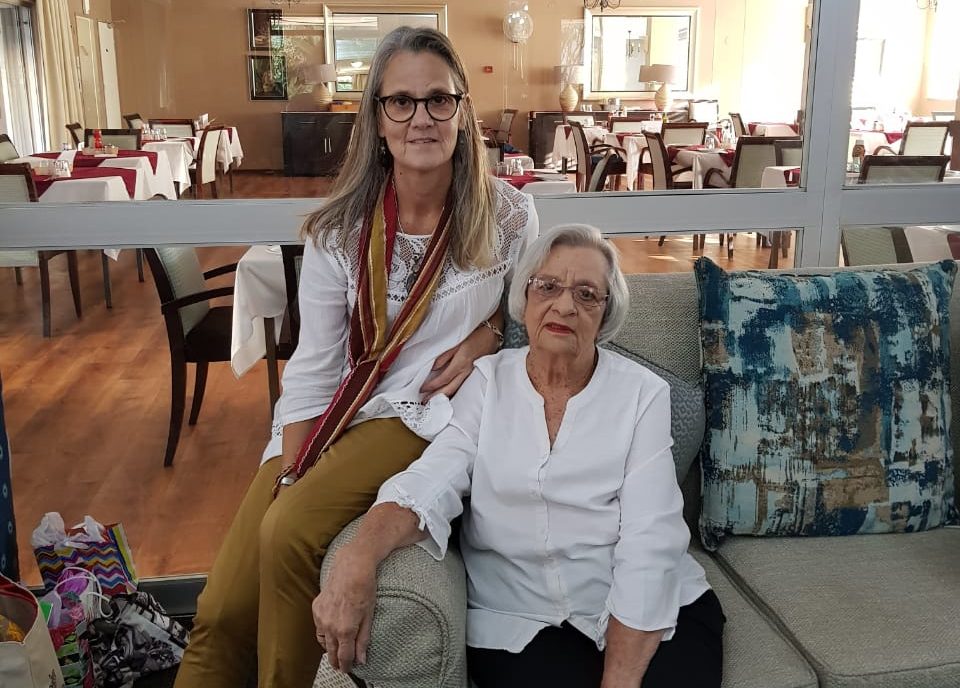
Featured Item

Durban community feels impact of KZN surge
Published
4 years agoon
As the epicentre of COVID-19 moves to KwaZulu-Natal (KZN), five people have died from the virus in the tiny Durban Jewish community of 1 800, all of them elderly.
Three of the deaths occurred at the community’s Jewish aged home, Beth Shalom, which has 67 residents. Two of these fatalities were frail-care residents. In all, 11 residents have tested positive.
The community has monitored 42 cases of COVID-19. Five people were hospitalised and have since been discharged, and 25 cases have fully recovered.
On a webinar on 12 August discussing the COVID-19 situation in the Durban Jewish community, South African Jewish Board of Deputies (SAJBD) KZN Council President Jeremy Droyman said that Beth Shalom, as well as the Jewel House home for the mentally disabled, went into total lockdown on 12 March.
Considering the “weak link” of staff at these facilities travelling on public transport, the SAJBD immediately set to work constructing a “home away from home” for staff members to live in. It also arranged transport for them. The Durban Jewish Centre (formerly the Durban Jewish Club) was transformed, with showers, beds, toilets, and water installed. Three meals a day were provided for staff by the community.
As lockdown lengthened, workers were allowed to go home for a week, but then spent two weeks in quarantine in community facilities before returning to work. The Beth Shalom staff was divided into two teams to allow one team to be relieved. There were huge costs involved, especially when it came to buying personal protective equipment and conducting COVID-19 tests, and Droyman thanked donors for carrying the costs.
There was also a quarantine ward set up at Beth Shalom, and the home had one COVID-19 case around 1 June. All Beth Shalom residents and staff were tested – a total of 132 tests altogether. Tests were conducted again towards the end of July, when 17 staff members and 10 residents tested positive. It was then that three COVID-19-positive residents passed away. The home is currently COVID-free, and a particular triumph was seeing one 99-year-old resident recover from the virus. There have been no cases of COVID-19 at Jewel House, which has 12 residents.
The community has a COVID-19 monitoring programme modelled on Hatzolah’s system in Johannesburg. Oximeters and thermometers are given to COVID-positive community members who are monitored closely, and a local doctor is on call to offer advice.
Droyman said that Durban Jewish Social Services (DJSS) has experienced an increase in requests for aid and food parcels as the lockdown takes its toll on the economy. Said director Janine Saperson, “DJSS still continues to see new cases. There is always someone having some form of difficulty especially now as a result of the effects of COVID-19. There is a lot of uncertainty among our clients, but not our residents in Jewel House, who remain remarkably calm and peaceful. We’re seeing increased feelings of anxiety including loneliness, fear, anger, and irritability.
“We are seeing many who feel guilty, or are experiencing feelings of worthlessness. It’s an unusual and trying time for all no matter the circumstances they find themselves in,” she said. “Our staff are doing an outstanding job around the clock to support our residents and clients in the community. We’d like to thank all those who are so loyal to our cause, and who continue to support and donate to DJSS and our residents in Jewel House from Durban, South Africa, and around the world. We simply couldn’t do this without you.”
Durban community member Louise Sinclair described the devastation of losing her mother, Betty Green, to the virus. At the age of 90, she was strong, and even travelled to Australia a year ago. She has been a resident at Beth Shalom since 2016, but lived with Sinclair and her husband for a number of weeks during the lockdown.
She chose to go back to Beth Shalom on 16 July. Around 26 July, she told her daughter that she had a croaky voice. Up until the end of July, she continued to feel unwell, and was put on an antibiotic as she was prone to bronchitis.
On 31 July, she felt lethargic and after lunch, she got up to open her door and felt faint. She started shivering uncontrollably and wasn’t breathing well. Her oxygen levels were checked, and she was put on oxygen. The next day, she was sent to hospital in an ambulance and was given a COVID-19 test and oxygen. The test came back positive.
She told her family that she didn’t want to be intubated if it came to that. “She continued to decline but was able to say goodbye to family members on the phone,” said Sinclair, who was allowed to visit her near the end. Before she died on 5 August, she told her daughter that she had lived “a wonderful life”.
Meanwhile, the general manager of Beth Shalom resigned last week, after being in the role for 10 years, and the senior matron also tendered her resignation, but is still in discussions with community leadership. Said, Droyman, “Things have been incredibly stressful, and we have been pushing very hard to keep the home safe. There has definitely been pressure on management to maintain the lockdown. We have a very big team there, with about 80 staff members to 67 residents. We have a nursing complement running 24 hours a day. The community is also very supportive and volunteers its time.”
Local experts praised the Durban Jewish community’s measures. “I don’t think there’s a programme countrywide that comes to the level of preparedness seen in the Durban Jewish community,” said Netcare Chief Executive Dr Richard Friedland on the webinar.
Professor Barry Schoub, emeritus professor in virology at the University of the Witwatersrand and the former director of the National Institute for Communicable Diseases, expressed “admiration for the exemplary work to protect an aged home from the virus, which is an example to the world”. Both warned that now wasn’t the time to relax vigilance as the virus surges in KZN.
Friedland noted that the eThekwini district was at the top of the top 13 impacted districts in South Africa as of 10 August, with the most active cases in South Africa. This includes Durban and Umhlanga. He said that the surge would probably last another week or two, and that the community could possibly open shuls under strict COVID-19 protocols around mid-September, just before Rosh Hashanah.










